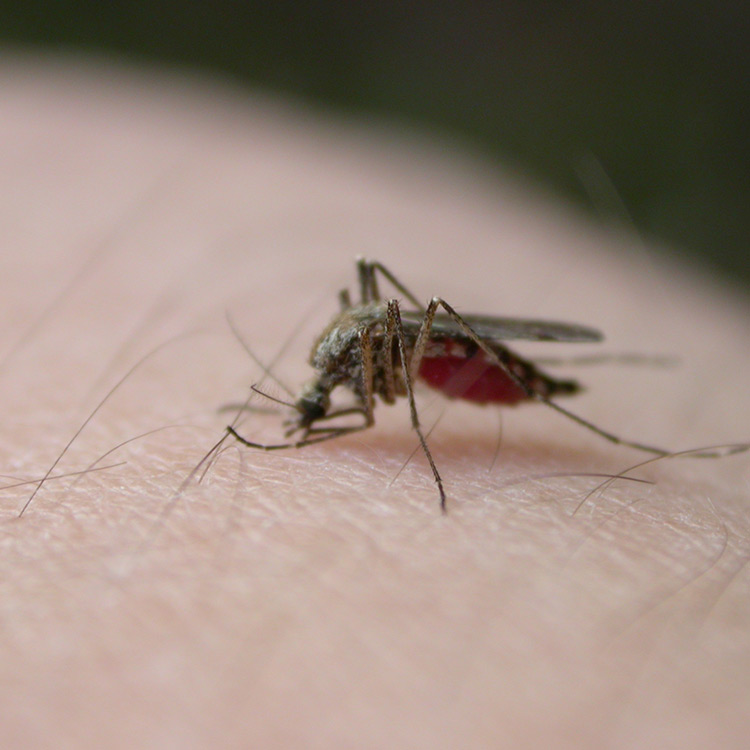Search
Research
The broader language phenotype of Autism: A comparison with Specific Language ImpairmentSome individuals with autism spectrum disorders (ASD) experience linguistic difficulties similar to those found in individuals with specific language...
Research
Assessment of the potency and potential immunomodulatory effects of the Measles Mumps Rubella-Varicella vaccine in infantsThis study compared the potency and immunomodulatory effects of measles mumps rubella (MMR) vaccine given to infants alone or in combination with varicella...
Research
Lost in translation: translational interference from a recurrent mutation in exon 1 of MECP2Rett syndrome (RTT) is an X linked neuro-developmental disorder affecting mostly girls. Mutations in the coding region of MECP2 are found in 80% of classic...
Research
Patterns trends and increasing disparities in mortality for Aboriginal and non-Aboriginal infants born in Western Australia 1980-2001: population database studySince there are known disparities between Aboriginal and non-Aboriginal populations in Australia, trends in infant mortality rates can be used to assess the...
Research
Safety and immunogenicity of a combined DTPa-IPV vaccine administered as a booster from 4 years of age: a reviewA combined DTPa-IPV booster vaccine was administered as a 4th or 5th dose after DTPa or DTPw priming.

News & Events
New meningococcal strains bring increased risk in WAA new study has confirmed the changing pattern of meningococcal disease in Western Australia.
Research
The First Research Report: patterns and trends in mortality of Western Australian infants, children and young people 1980-2002The Advisory Council on the Prevention of Deaths of Children and Young People today officially released this report.
Research
A Phase 3, randomized, double-blind trial to evaluate the safety and immunogenicity of a 20-valent pneumococcal conjugate vaccine given as a series of 2 infant doses and 1 toddler dose in healthy infants (NeXXstep)Jennifer Peter Kent Richmond RN MBBS MRCP(UK) FRACP Clinical Research Manager Head, Vaccine Trials Group Jennifer.Kent@thekids.org.au Clinical
Research
OPTIMUM: OPTimising IMmunisation Using Mixed schedulesPat Peter Susan Tom Jennifer Holt Richmond Prescott Snelling Kent PhD, DSc, FRCPath, FRCPI, FAA MBBS MRCP(UK) FRACP MBBS BMedSci PhD FRACP BMBS DTMH
Research
Antifungal therapy in infants and children with proven, probable or suspected invasive fungal infectionsThis review aims to systematically identify and summarise the effects of different antifungal therapies in children with proven, probable or suspected...
Research
Diverging trends for lower respiratory infections in non-Aboriginal and Aboriginal childrenTo investigate temporal trends in admission rates for acute lower respiratory infections (ALRI) in a total population birth cohort of non-Aboriginal and...
Research
Vaccinating young adults against HPV: the importance of understanding health decision-making and behaviourVaccination of young teenage females against human papillomavirus (HPV) with a newly licenced quadrivalent vaccine designed to prevent cervical cancer and...
Research
An observational study of the reactogenicity and immunogenicity of 13-valent pneumococcal conjugate vaccine in women of childbearing age in Papua New GuineaMaternal immunization with pneumococcal conjugate vaccine (PCV) may protect young infants in high-risk settings against the high risk of pneumococcal infections in early life. The aim of this study was to determine the safety and immunogenicity of 13-valent PCV (PCV13) in healthy women of childbearing age in PNG.
Research
AMEND study protocol: A case-control study to assess the long-term impact of invasive meningococcal disease in Australian adolescents and young adultsThis study aims to address this evidence gap by assessing the clinical, physical, neurocognitive, economic and societal impact of invasive meningococcal disease

News & Events
Zika threat leads to Australian-first microcephaly studyWA Researchers have conducted an Australian-first study to determine the prevalence of microcephaly, in preparation of any future outbreak of the Zika virus.
Research
Safety and immunogenicity of S-Trimer (SCB-2019), a protein subunit vaccine candidate for COVID-19 in healthy adults: a phase 1, randomised, double-blind, placebo-controlled trialAs part of the accelerated development of vaccines against severe acute respiratory syndrome coronavirus 2 (SARS-CoV-2), we report a dose-finding and adjuvant justification study of SCB-2019, a protein subunit vaccine candidate containing a stabilised trimeric form of the spike (S)-protein (S-Trimer) combined with two different adjuvants.
Research
Excess stroke incidence in young Aboriginal people in South Australia: Pooled results from two population-based studiesThe excess stroke incidence in Aboriginal South Australians appears substantial, especially in those aged <55 years
Research
Cohort Profile: The New South Wales Child Development Study (NSW-CDS)-Wave 2 (child age 13 years)The New South Wales Child Development Study was established to enable a life course epidemiological approach to identifying risk and protective factors
Research
Effectiveness of 13-valent pneumococcal conjugate vaccine against hypoxic pneumonia and hospitalisation in Eastern Highlands Province, Papua New Guinea: An observational cohort studyPneumonia is a leading cause of childhood mortality with Streptococcus pneumoniae a major contributor. Pneumococcal conjugate vaccines (PCVs) have been introduced into immunisation programs in many low- to middle-income countries yet there is a paucity of data evaluating the effectiveness in these settings. We assess the effectiveness of 13-valent PCV against hypoxic pneumonia, hospitalisation and other clinical endpoints in children <5 years living in Eastern Highlands Province, Papua New Guinea).
Research
Maternal smoking and low family income during pregnancy as predictors of the relationship between depression and adiposity in young adultsWe aimed to investigate the influence of antenatal and postnatal factors on the increasing incidence of overweight/obesity and mental health disorders in young adults
